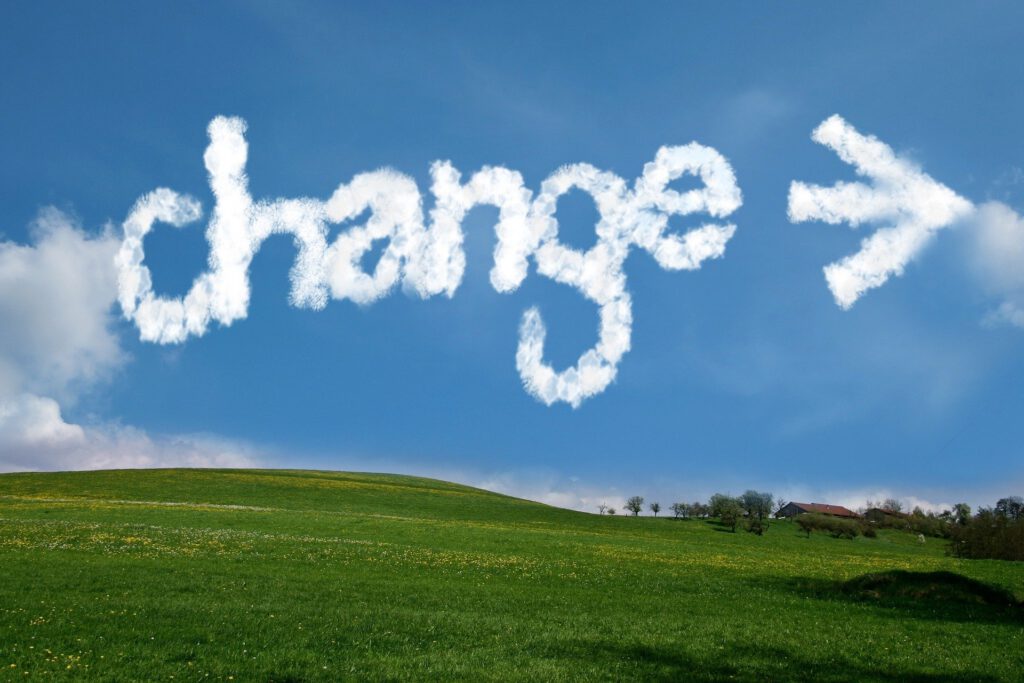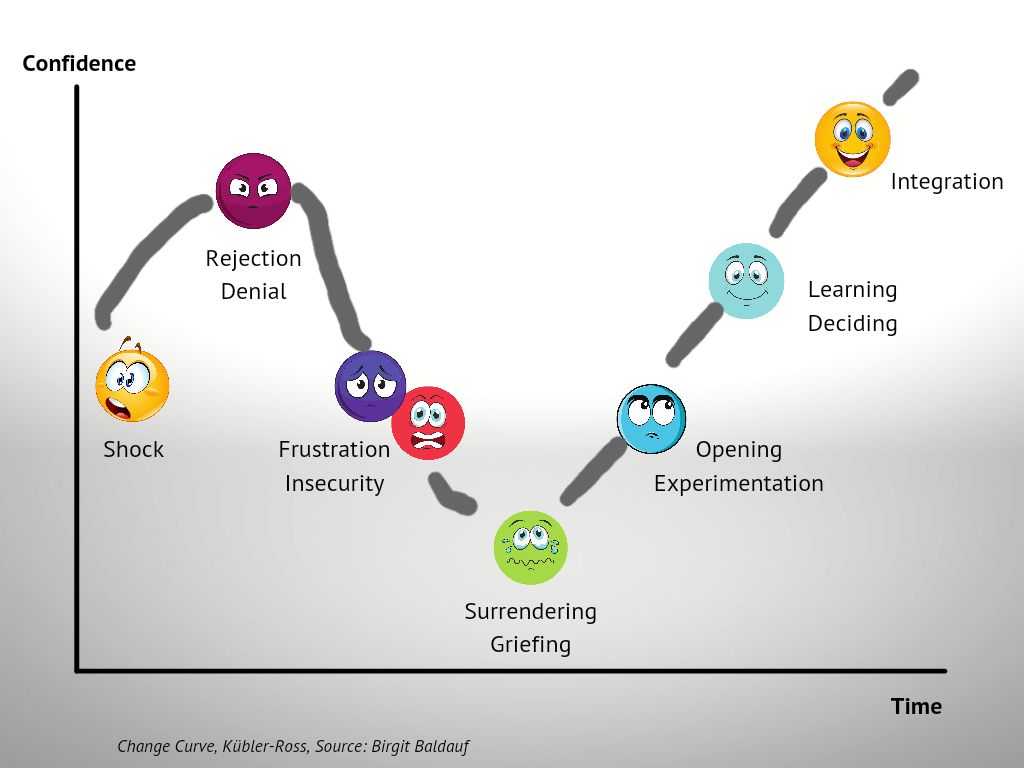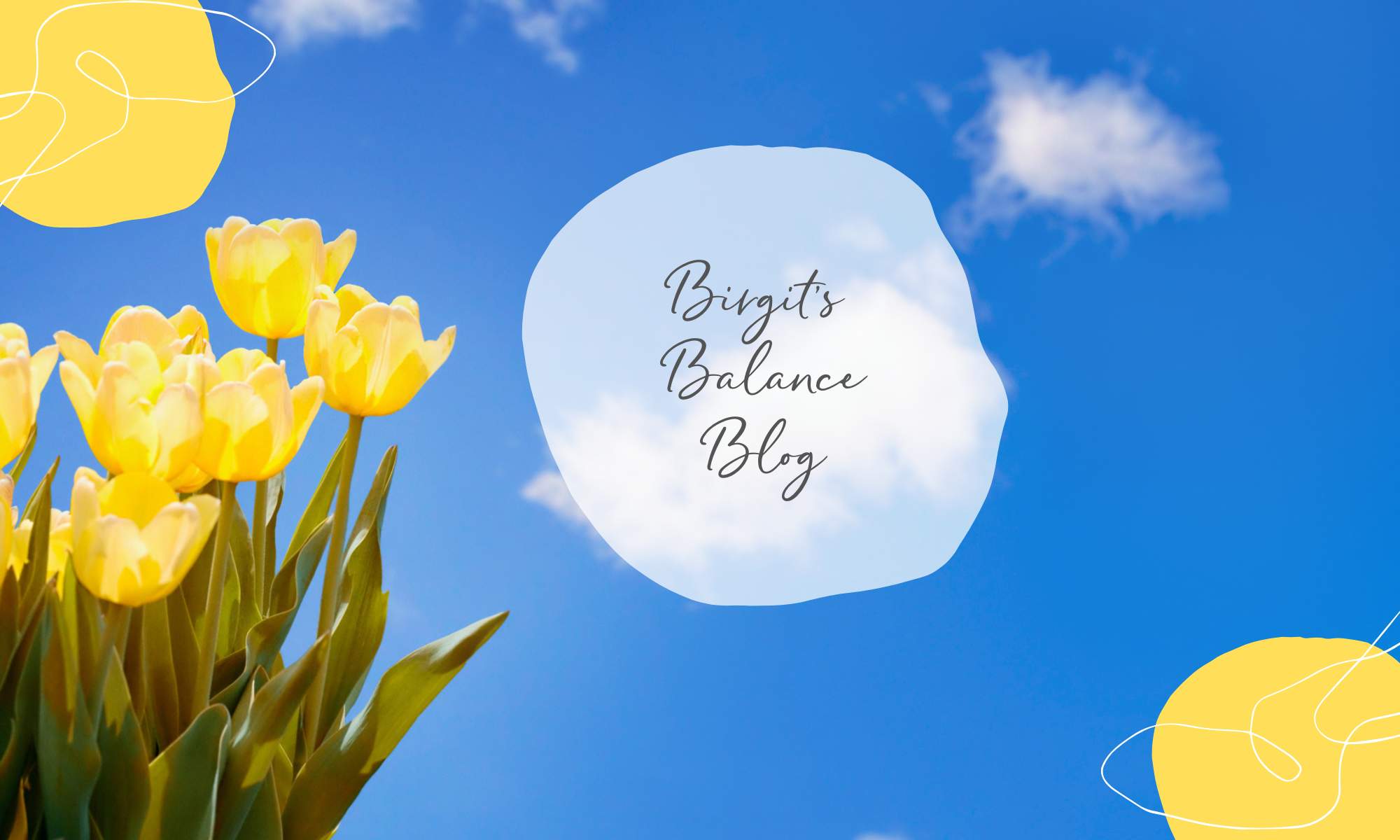
Changes can really get our emotions running high. Especially the unwanted, unexpected and, at first glance, unfavourable changes.
What makes change so uncomfortable??
- It’s energy consuming. Change brings down our established system: our entire system (body & mind) is geared towards getting us through life as “economically” as possible. I.e. we search – mostly unconsciously – for solutions and establish routines and habits in order to get high results with little effort. This way we can save energy, which we can then use for essential crisis situations.
- It brings uncertainty. Often at the beginning of an emerging change we do not know much about how it will develop or what it will result in. Sometimes we don’t even understand how it emerged or why it is suddenly happening.
- It’s overwhelming (at the start): Along with uncertainty comes worry about our ability to cope with that change. This is especially hard on us when we have no reference experience, i.e. when we are experiencing that kind of change for the first time.
Thus, change weakens all three aspects that we need for our well-being according to the concept of salutogenesis (what keeps us healthy): The coherence of understandability, manageability and meaning.
Emotional Rollercoaster
In the context of management training on change management, the curve of people’s emotional experience of change established by Ellisabeth Kübler-Ross* (Swiss-US psychotherapist who studied death and how to deal with the dying, grief and mourning) is often referred to. Kübler-Ross came to the conclusion that all people go through the same emotional phases when facing significant change.
Since we have all been undergoing significant global change for almost two years now, which continuously strains and lowers our tolerance threshold and stress level, it is very likely that we react more sensitively and helplessly to “smaller changes” that happen in parallel to the all-encompassing one. Our awareness of what is happening to us and in us “in the curve” can help us not to get stuck in one phase. Plus: isn’t it nice to know that this too “will pass”? 😉

Master the Ride
| Phase | How we feel | What helps |
| Shock | Our system is pushed out of habit! We are pushed out of our comfort zone; we feel caught off guard, surprised, perhaps even as if in a state of shock, as if “in a void”. | Take your time and accept what are feeling! (Also applies to the other 6 phases´) |
| Rejection, Denial | We don’t want that! It’s not true! That’s nonsense! That certainly only affects the others, not me; “I’ll just carry on like always, let’s see”, denial, disbelief, repression. | Yes, you don’t want it – but what if it does affect you? Hypothetically? Start collecting facts. What exactly is changing? What is the good in the bad? What opportunities come alongside with the change – or with astering the change process? How could this change be your teacher? |
| Frustration, Insecurity | Slowly we realise that we cannot “push it away”, it will happen or is already here – and yes, we are affected! What a sh … We are angry and annoyed, sometimes even desperate that we are somehow forced to go through it. Insecurity spreads. | Allow your anger and frustration to be heard. But don’t let them control you. Remember your resources: Who could you talk to about what’s bothering you? Avoid choosing people who will whine with you. Look for those you perceive as solution-oriented! Remember changes in the past that you have successfully mastered! |
| Surrendering, Griefing | We see that our “old patterns and systems” no longer work. But they were so beautiful! How can something so good, beautiful and established be over? We know we have to say goodbye, but it hurts so much. We are in the valley of tears. | Take time to cherish memories of what will go. Realise that even if things change, your memories will always remain! Then let “the old” go in peace – you can also do this consciously with a “farewell ritual”. Then let go. |
| Opening, Experimentation | We start to come to terms with the fact that we need a new way of dealing with the change, with the new situation. We open ourselves to new behaviours and thoughts and try out what works for us and what does not. Cautious, first steps, growing confidence that we influence parts of it. | Continue exchanging with others! Who has had similar experiences? How can you deal with it? What suits you? What would be the worst thing that could happen? What would be the best thing that could happen? What is the most likely scenario? What reasonable action could you plan? What’s the best way to deal with the change? What are helpful thoughts, a helpful mindset? |
| Learning, Deciding | Our confidence grows, we have various experiences of success and mastery in the new situation and start to feel better about it. We learn from our trials and consciously choose how we want to deal with it. | How are you doing with your first experiences in the new situation? What works? What do you want to keep? |
| Integration | We have accepted the new situation and are implementing our way of dealing with it. We develop new routines in the new setting (in which our system makes itself comfortable again until the next change comes along ;-)). | Be happy, you have mastered it! And be aware that nothing lasts forever 😉 |
I am belief that in the future we will have to cope with more and more changes in much shorter time intervals.
May we succeed more and more confidently!
Have a good week!
Birgit
